#jukichi uno
Text

Masayuki Mori in Love Letter (Kinuyo Tanaka, 1953)
Cast: Masayuki Mori, Juzo Dosan, Yoshiko Kuga, Jukichi Uno, Kyoko Kagawa, Shizue Natsukawa, Kinuyo Tanaka, Chieko Seki, Ranko Hanai, Chieko Nakakita, Keisuke Kinoshita. Screenplay: Keisuke Kinoshita, based on a novel by Fumio Niwa. Cinematography: Hiroshi Suzuki. Art direction: Seigo Shindo. Film editing: Toshio Goto. Music: Ichiro Saito.
3 notes
·
View notes
Text

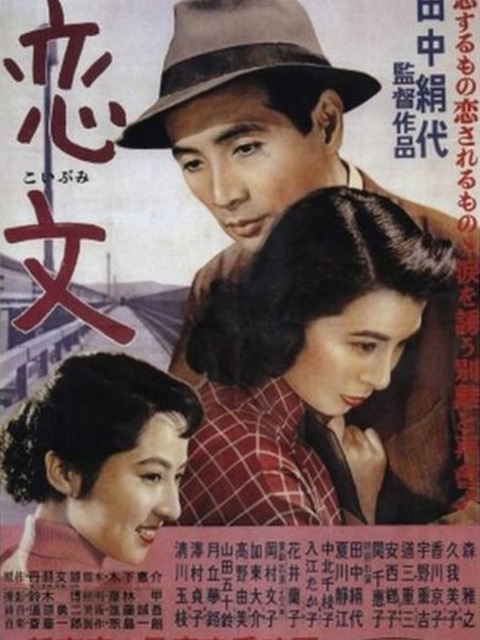
"Lettre d'Amour" de Kinuyo Tanaka (1953), avec Masayuki Mori, Yoshiko Kuga, Jukichi Uno et Juzo Dosan, août 2023.
1 note
·
View note
Text

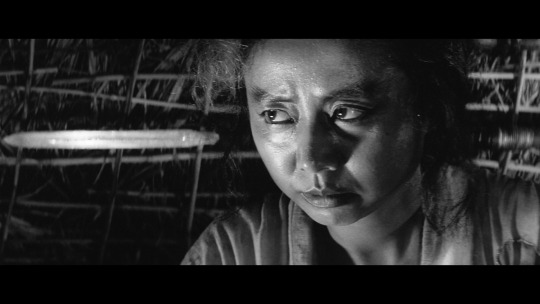
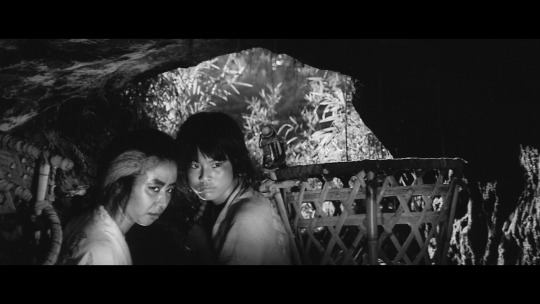
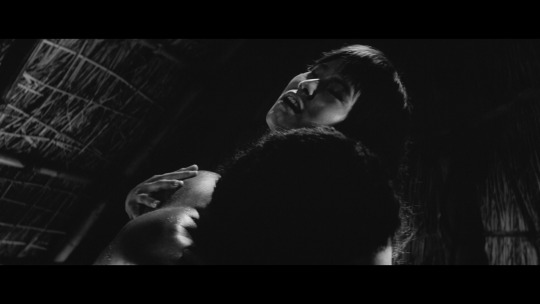






ONIBABA 鬼婆 (1964)
CRITERION COLLECTION Blu-ray 2021
#鬼婆#onibaba#Demon Hag#kaneto shindo#horror#drama#nobuko otowa#乙羽 信子#Jitsuko Yoshimura#吉村実子#Kei Satō#佐藤 慶#Taiji Tonoyama#殿山 泰司#Jukichi Uno#宇野重吉#新藤 兼人#blu-ray#physical media#criterion collection#film#movie#gallery#japan
61 notes
·
View notes
Photo

Recommendation of the week: Onibaba (1964)
Dir.: Kaneto Shindô
Cast.: Nobuko Otowa, Jitsuko Yoshimura, Kei Sato, Taiji Tonoyama, Jûkichi Uno.
Genre: Terror
Plot: In the Fourteenth Century, during a civil war in Japan, a middle-aged woman and her daughter-in-law survive in a hut in a field of reed killing warriors and soldiers to trade their possessions for food.
Filmphilics score: 8/10
🎃 Halloween is coming... 🧟♀️
#onibaba#kaneto shindo#nobuko otowa#jitsuko yoshimura#kei sato#taiji tonoyama#jukichi uno#terror#terror films#terror movie#cult movies#cult film#cult cinema#cinema#film#movie
31 notes
·
View notes
Audio
We travel to Japan for 1949's YOTSUYA KAIDAN from director Keisuke Kinoshita, starring Kinuyo Tanaka & Ken Uehara!
From its origins as a Kabuki play, to what Japan's post-war film industry looks like, we introduce Japan's most famous ghost story to Scream Scene listeners.
Context setting 00:00; Synopsis 53:02; Discussion 1:11:14; Ranking 1:42:41
#podcast#horror#yotsuya kaidan#japan#japanese ghost story#ghosts#supernatural#keisuke kinoshita#kinuyo tanaka#ken uehara#keiji sada#jukichi uno#osama takizawa#haruko sugimura#masaki kobayashi#shochiku studios#kabuki#japanese horror#kabuki plays#classic horror#tsuruya nanboku iv#kanadehon chusingura#ghost of oiwa
11 notes
·
View notes
Photo
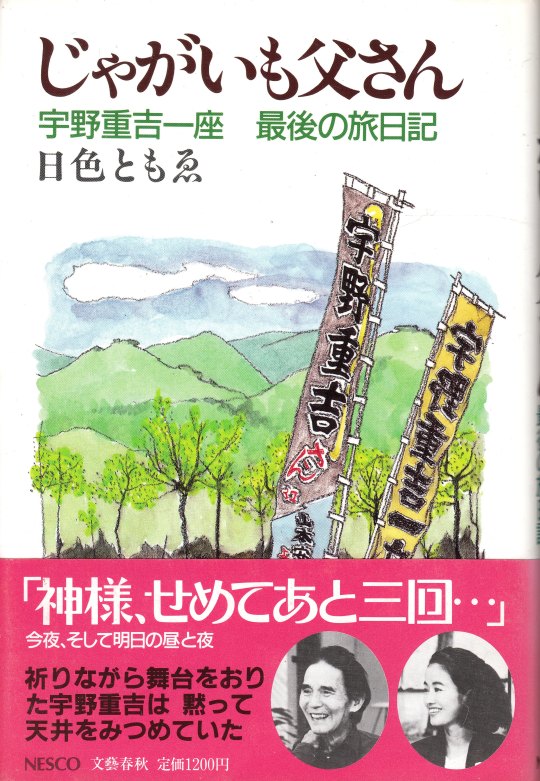
じゃがいも父さん-宇野重吉一座 最後の旅日記
日色ともゑ
NESCO
装幀=粟屋充
#じゃがいも父さん-宇野重吉一座 最後の旅日記#じゃがいも父さん#jukichi uno#宇野重吉#tomoe hiiro#日色ともゑ#粟屋充#anamon#古本屋あなもん#あなもん#book cover
3 notes
·
View notes
Photo
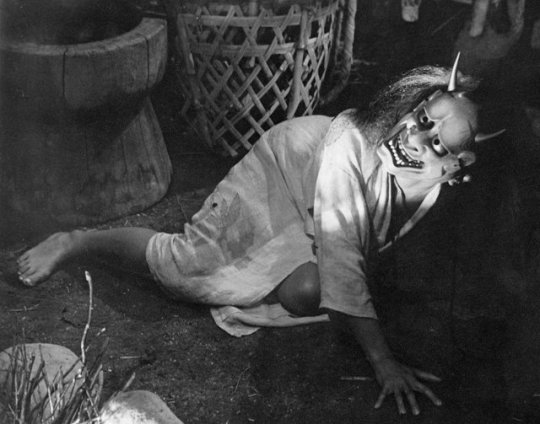



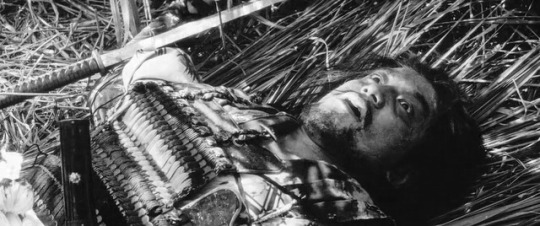
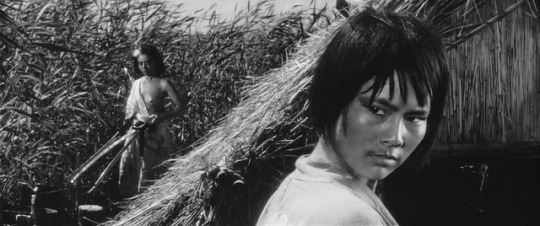


Jukichi Uno is the masked man in Onibaba (1964), written and directed by Kaneto Shindo, who was born in Hiroshima. He died in 2012 and lived to be 100. His entry on the TSPDT list of the 1,000 Greatest Films is The Naked Island (ranked number 819 on the 2019 edition). Kaneto also had 215 writing credits from 1940 to 2010, and 12 credits as art director, from 1934 to Onibaba in 1965.
51 notes
·
View notes
Photo



Shiinomi gakuen (Hiroshi Shimizu, 1955)
1 note
·
View note
Photo

Onibaba (1964)
#1960s#actor jukichi uno#dir kaneto shindo#dp kiyomi kuroda#cat horror#japanese#monochrome#mask#teeth#horns
12 notes
·
View notes
Photo
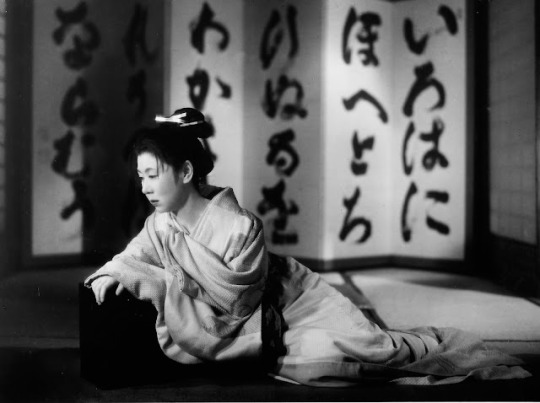
Kinuyo Tanaka in The Life of Oharu (Kenji Mizoguchi, 1952)
Cast: Kinuyo Tanaka, Tsukie Matsuura, Ichiro Sugai, Toshiro Mifune, Toshiaki Konoe, Kiyoko Tsuji, Hisako Yamane, Jukichi Uno, Eitaro Shindo, Akira Oizumi, Kyoko Kusajima, Masao Shimizu, Daisuke Kato. Screenplay: Kenji Mizoguchi, Yoshikata Yoda, based on a novel by Saikaku Ihara. Cinematography: Yoshimi Hirano. Production design: Hiroshi Mizutani. Film editing: Toshio Goto. Music: Ichiro Saito.
Oharu (Kinuyo Tanaka) is by turns a lover, a concubine, a courtesan, a servant, a wife, a prostitute, and a nun, which in the 17th-century Japan of Kenji Mizoguchi's film is almost everything a woman could possibly be. But Tanaka's great performance individualizes Ohara, keeping her from just being a representative figure, a stand-in for Woman. Over the course of the film, Oharu suffers almost every indignity that could be inflicted on her: At the court in Kyoto where she is a lady in waiting, she falls in love with a page, Katsunosuke (Toshiro Mifune), but when their affair is discovered, she and her parents are expelled and he is beheaded. One day a courtier for a powerful feudal lord comes to the village where they are exiled: The lord is in need of an heir, and his wife is barren. Oharu fits his rather exacting specifications to the letter, so she is brought to his palace where she bears him a son, but she's not allowed to nurse the child and is expelled from the household by his jealous wife. She goes to work as a courtesan to pay off the debts incurred by her greedy father (Ichiro Sugai), takes a job as maid to a woman who suspects her of sleeping with her husband, marries a man who is killed by robbers, and becomes a Buddhist nun but is expelled from the temple for supposedly seducing a man who was actually trying to rape her. Years pass and she loses her beauty and now walks the streets to earn money to survive, but she is subjected to scorn and mockery as a "goblin cat" by a man leading a group of young pilgrims. Hope dawns when she is summoned to meet her son, who has succeeded his father as lord, but it turns out that the officials in the court really want to cover up the fact that their lord's mother has been a prostitute, so she runs away after only a brief and distant glimpse of him. At the end she wanders the streets as an itinerant nun receiving alms in exchange for prayers -- her prostitution is now spiritual rather than physical. It's easy to take a synopsis like this and dismiss the story as "lachrymose as a soap opera," and "a reverse Horatio Alger adventure," as a particularly obtuse New York Times review did when The Life of Oharu was first released in the United States in 1964. It is neither of those things, of course. Even the Times reviewer was struck by Tanaka's performance, Mizoguchi's direction, and Yoshimi Hirano's cinematography, without understanding how or why these elevate the story into art. The story comes from a 17th-century novel by Saikaku Ihara, The Life of an Amorous Woman, a work far more erotic and picaresque than the melancholy screenplay Mizoguchi and co-screenwriter Yoshikata Yoda derived from it. The Life of Oharu is unremittingly grim -- it put me in mind of the novels of Thomas Hardy, whose characters suffer more than seems absolutely necessary for the author to make his point about the workings of fate. But the film is not about suffering; it's about strength, and women's strength in particular.
8 notes
·
View notes
Photo

鬼婆 / Onibaba (1964)
Kaneto Shindô
Japan
#鬼婆#Onibaba#1964#kaneto shindo#japanese films#nobuko otowa#jitsuko yoshimura#kei sato#jukichi uno#horror film
0 notes